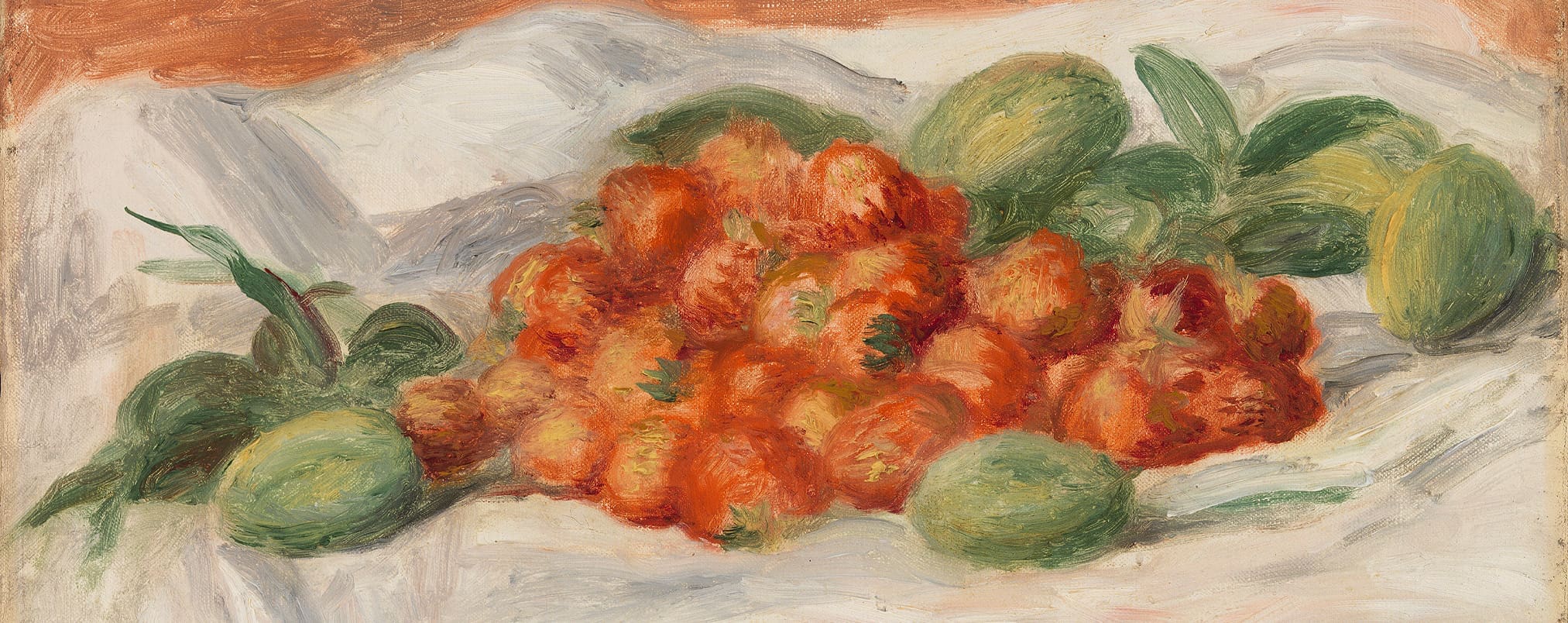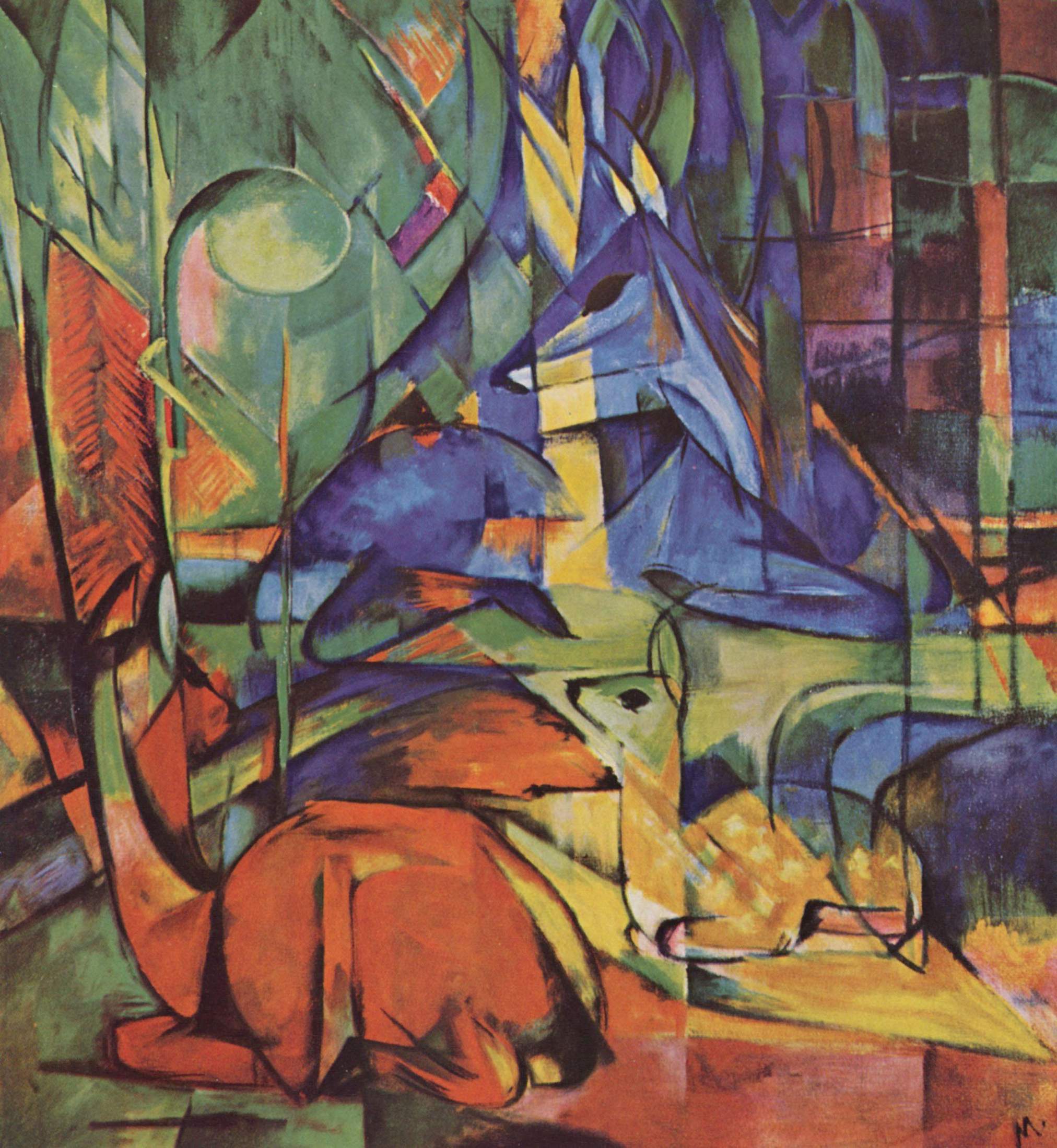A
As winter thaws into spring, deer appear at our hilltop yard. Sometimes they nose their way to the glass front door and my daughter, a toddler, points and exclaims. These deer must see us because if we move too suddenly they dash away, crash through the copse of trees around the field, down the hill and out of sight. To my daughter, I know, these apparitions feel like miracles—inexplicable, divine.
Historically, I have been suspicious of miracles. As if a supernatural force would bother to intercede in our affairs. As a kid at church, it was hard for me to feel that mundane stale bread could hold the miraculous body of Christ. I used to clean up after Sunday services. Dragging my hand across the counter, I guided the crumbs from the cheap white loaf into the trash. You shouldn’t have to clean up after miracles, I thought.
I remain suspicious. But, then, there’s our daughter. She entered our life during the first wave of lockdowns in 2020. In those early months, I’m not sure who changed more: me or the baby. Yes, she grew every day—acquired new skills, new strength, new skin and hair and baby fat. But I transformed too. I became adept with bottles and burps. I was the master of tummy time—an infantilizing phrase I hate, even though I know she was, in fact, an infant. I could give the quickest diaper change east of the Mississippi. I was surprised by the newfound depth of my affection every day. I learned to love her.
This love gleamed—sharp, dangerous. She was not yet our daughter, but our foster daughter. I agonized about the attachment I felt and fretted that if she left, a part of me would leave too. I believed that the best outcome was for her to be raised by her biological family, and I cautioned myself to keep some emotional distance. This was impossible. I wanted to hold space for her family of origin, but grief took me all the time: grief for her first parents and their loss. As I changed, as she grew, the grief became ever-more urgent. The heartbreaking thing about a miracle is the pain from which it must be born. A miracle is only a miracle if it includes this world’s suffering, our fallen state.
The central Christian celebration of the Easter miracle follows the equinox. The first Sunday after the first full moon after the springtime balance of day and night. The green blades of spring rise; Christ emerges whole and perfect, reborn from the tomb. It’s easy to see the resonance of the metaphor. But I wonder if there isn’t something deeper at the heart of Easter—something about the connection between it and the vernal equinox. Balance, maybe. The perfect fullness of God’s time and the fraught, imperfect rush of human time lying atop each other like two transparencies on a projector, finally casting a whole image of life onto the screen.
The Greeks had two words for time: kairos and chronos. Kairos meant the qualitative, perfect time of action, a moment of decisive beauty. God’s time. Chronos, on the other hand, fell to mere mortals, quantitative, the time ticked away by a clock. I think, often these days, about the beating metronome of my life with my daughter. The mad dashes through breakfast to preschool to playdates to dinner to bedtime. But, once, after a long day of unceasing chronos, we sang together as I played the piano, and the room filled with something amber, sticky, and slow, my voice and fingers and mind moving through honey. Without chronos, what use would we have for kairos?
The heartbreaking thing about a miracle is the pain from which it must be born.
Sometimes it seems that the delights of this life are merely the shadows cast by some other tragedy. This interplay between light and dark, good and evil, has vexed minds far wiser than mine. Ancient philosophers, for example, wondered about the need for the virtues in heaven. Why, they asked, would we need courage if there is nothing to confront? When would generosity be called for if there is no scarcity?
Karl Marx, perhaps in answer, said that in his utopia we would hunt in the morning, fish in the afternoon, graze cattle in the evening, and philosophize after dinner. Marx locates the miraculous—human liberation—inside the deceptive ordinariness of work, which tracks Genesis at least. Through toil, the Bible tells us, we will eat of the ground all the days of our lives. Maybe that’s true even of heaven. Maybe, even there, the joy and obligation remain conjoined. They certainly seem to be here on earth.
There’s an argument here that I can’t bring myself to make: that we need suffering in order to receive grace; that there is no good without evil; no love without hate. I refuse to believe it. Still, I don’t know what a miracle is in the absence of the ordinary. I don’t know how to love my daughter absent her pain. I’m not sure I should.
In 2020, just before the baby came, I attended a virtual Quaker meeting on Easter Sunday while my partner sewed cloth masks. The muted, too-perfect quiet of the others on my screen, my bulky, noise-cancelling headphones, the not-actually-cancelled rattle of the sewing machine: it all lacked the richness of the silence in the meeting house. A friend shared a message. Garbled, I caught only every third word. He forgot to mute himself after his share, and for several minutes, his harsh, robotic breath sheared through the gauzy quiet. When the host finally muted him, I was surprised that I missed the intimacy of his distorted breathing, the reminder that humans always fill a space with noise, even in the silence of a meeting.
Then, a man shared an Ellen Bass poem. “The thing is,” he read to the grid of disembodied faces, “to love life / to love it even / when you have no stomach for it.” Someone else offered a prayer that we all might drink from the same metaphorical river. Her eyes were closed, transported to its figurative banks. Another woman sang, and I could see the mute lips of the others moving, out of time, but in miraculous unison all the same.
After, I dashed to the grocery store, the skin on my fingers cracked and painful from so much hand sanitizer. I made an Easter pavlova, a tradition in my family. The raspberries that top the whipped cream and baked meringue stained the frosting red. My parents’ faces warmed my phone’s screen, and, for a moment, I was lifted out of my cramped apartment—until my partner noted that these fresh berries were picked by people vulnerable to the ravages of this virus, that they were still leaving their homes to get us the raw materials for our little Sunday miracle.

If miracles entail the sudden recession of the human in favour of the divine, I don’t know that I have the stomach for them—at least not when the divine requires this world to be fallen, terrible. And, surely, that is the mystery of the story of Christ’s resurrection. For it to happen, he had to die a horrific death, nailed to a cross. Easter holds both gruesome suffering and divine beauty. The foundation of any good miracle.
My daughter is almost three now. Today, she points out the window, exclaiming once again at the deer that come, thirsting for salt, to our hilltop yard. For her, a moment of perfect kairos. A miracle every time. I don’t have the heart to tell her that they come only because they’re hungry, desperate; she wouldn’t understand even if I did. In growing old, we trade kairos for chronos, attuned as we are to the world’s unceasing suffering. She doesn’t understand why I am quiet on Father’s Day, thinking about her first family, about the unbearable truth that our family’s beauty comes from the dismantling of another. But I bear that unbearable truth for her sake—and for mine. And I find it isn’t unbearable after all. At least not for me. I get to raise her. I get to love her.
On Easter many years ago, a woman rose at our Quaker meeting to say that the world was fallen when Jesus died on the cross, and the world is fallen still. She’s right, of course. The miracle didn’t stick. At least for now. There is still work to be done. I don’t know how we’ll celebrate this Easter. Maybe we won’t. Maybe I’ll have no stomach for it. Or, maybe, we’ll come to a house on a hill, hungry, desperate, searching for something—for a miracle.







